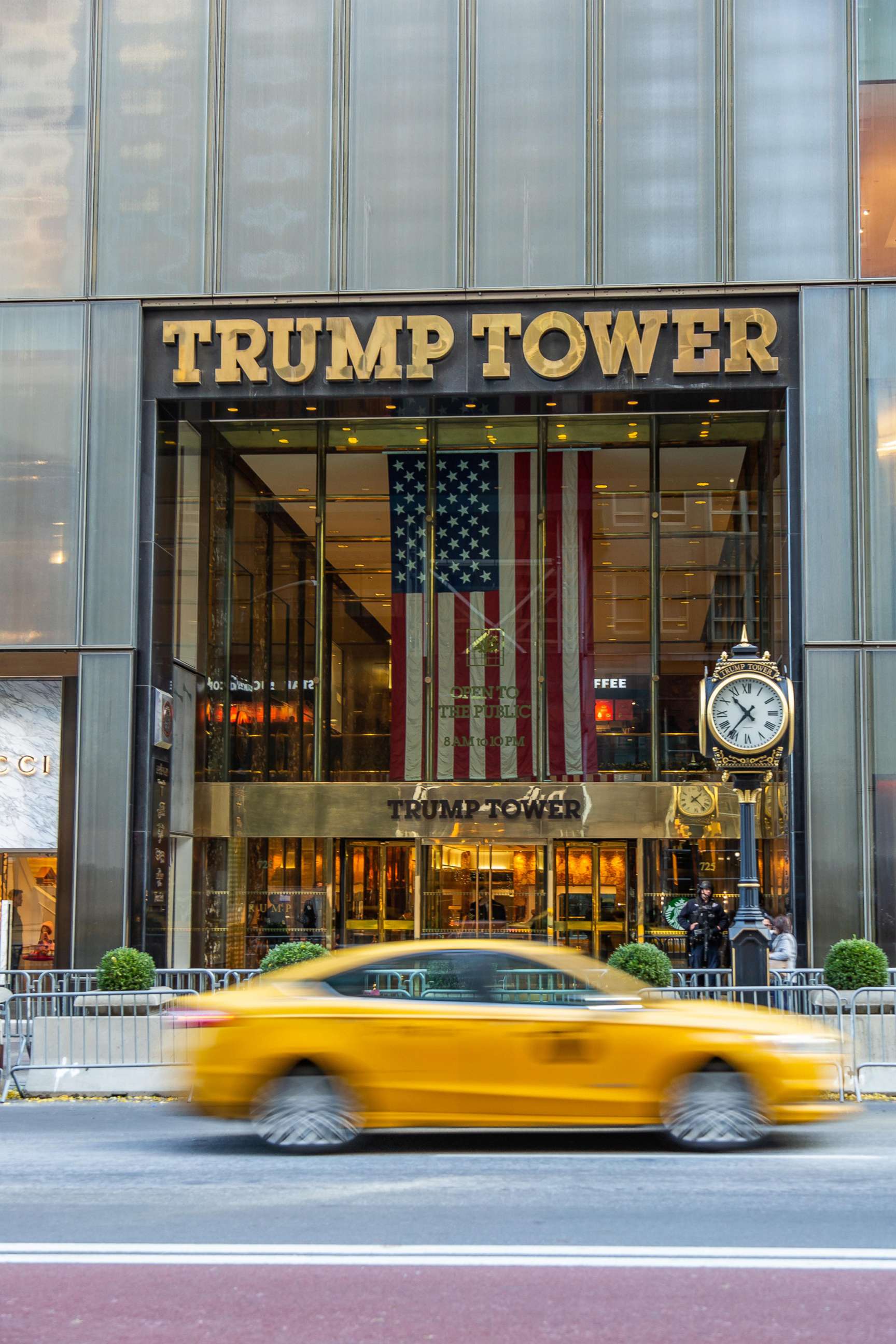Jury selection to begin in Trump Organization fraud trial
Trump's real-estate business is charged with a years-long scheme to evade taxes.
Jury selection is set to begin Monday in the criminal trial of former President Donald Trump's namesake family real-estate business, which was charged last year by prosecutors in Manhattan with orchestrating a years-long scheme to evade taxes.
The Trump Organization compensated certain executives with off-the-book perks -- including rent, utilities and garage expenses at a luxury apartment building, private school tuition, and leases for luxury cars -- that were never accounted for on the company's payroll taxes, according to the Manhattan district attorney's office.
"This was a 15-year-long tax fraud scheme," Carey Dunn, then-general counsel at the Manhattan DA's office, said when the indictment was unsealed last summer. "It was orchestrated by the most senior executives."
The company has pleaded not guilty and Trump has dismissed the investigation as a "hoax." A spokesperson for the Trump Organization previously said in a statement that the company will "look forward to having our day in court."
A corporate defendant cannot serve prison time. A conviction could require the Trump Organization to pay a maximum fine of $10,000 and, potentially, the taxes allegedly skirted.
More significant, according to authorities, are the potential collateral consequences that could come with a conviction. Existing contracts could be voided if a counterparty has rules against doing business with felons, and banks could consider calling in loans or altogether terminating their relationship with the Trump Organization.
"One major issue when considering a corporate conviction is reputational harm," said Daniel R. Alonso, a partner in Buckley's New York office and formerly the chief assistant district attorney in the Manhattan district attorney's office.

On the other hand, said Alonso, "In this case, I'm not sure the Trump Organization's reputation could be harmed much more than it has been."
The trial, which is expected to last into early December, comes as Trump faces a half-dozen other investigations into his business practices, his efforts to overturn the Georgia vote, his alleged role in the Jan. 6 attack, and the removal of documents with classification markings from the White House.
Among those testifying in the Trump Organization trial will be the company's longtime chief financial officer Allen Weisselberg, who pleaded guilty last month after being charged as part of the alleged scheme.
The longtime CFO pleaded guilty to all 15 counts he faced, including conspiracy, criminal tax fraud, grand larceny and falsifying business records. He conceded that he skirted taxes on nearly $2 million in income, including fringe benefits like rent, luxury cars and private school tuition for his grandchildren.
Weisselberg, who first met Trump in the 1970s when he began working for his father, was required to testify against the Trump Organization as part of his plea deal, and to serve five months in jail.
"The case against [the Trump Organization] is dramatically strengthened," prosecutor Josh Steinglass said of Weisselberg's guilty plea at a hearing in the case in September.
"During the operation of the scheme, the defendants arranged for Weisselberg to receive indirect employee compensation from the Trump Organization in the approximate amount of $1.76 million ... in ways that enabled the corporate defendants to avoid reporting it to the tax authorities," the indictment against Weisselberg said.
The charges are a "disgrace" and "shameful," Trump told ABC News last year after the indictment was unsealed, calling Weisselberg "a tremendous person."
The indictment said that, beginning in 2005, Weisselberg used the corporation's bank account to pay the rent for his apartment, and he and others paid their utility bills using the corporation's account. The indictment also accused Weisselberg of concealing "indirect compensation" by using payments from the Trump Organization to cover nearly $360,000 in upscale private school payments for his family, and for nearly $200,000 in luxury car leases.
"Weisselberg intentionally caused the indirect compensation payments to be omitted from his personal tax returns, despite knowing that those payments represented taxable income and were treated as compensation by the Trump Corporation in internal records," the indictment said.
The rest of the case against the Trump Organization is based largely on documents, including spreadsheets and charts, along with other accounting materials. Prosecutors say their challenge will be to spin a compelling narrative for the jury to follow.
The prosecution will be led by Steinglass, who joined the prosecution team from the district attorney's violent crime division, and Susan Hoffinger, the head of the DA's investigation division.
A corporate tax fraud case was not what prosecutors were after when they first filed charges against Weisselberg last summer. Sources have told ABC News that prosecutors had hoped Weisselberg would turn on Trump as part of a larger criminal investigation into the former president's business practices that remains ongoing.
But the plea deal that Weisselberg agreed to contains no requirement that he cooperate in the criminal case against Trump himself, which centers on whether Trump knowingly misled tax authorities, lenders and insurance brokers by providing inaccurate financial statements about the value of his real estate portfolio.
Trump, who has denied all wrongdoing, has decried the investigation as politically motivated.




